
Product
Anaprox (Generic) 500 MG
$96.00 – $450.00
Anaprox is a nonsteroidal anti-inflammatory drug which is used to treat headaches, muscle aches, backaches, tendonitis, dental pain, and menstrual cramps. GENERIC MODEL ‘NAPROSYN’ WILL BE SHIPPED.
- MANUFACTURER:
- SALT COMPOSITION:
General information
Anaprox is known as a nonsteroidal anti-inflammatory drug (NSAID). It is used to relieve pain and swelling (inflammation) from various conditions by reducing hormones. It is used to treat headaches, muscle aches, backaches, tendonitis, dental pain, and menstrual cramps. It also reduces pain, swelling, and joint stiffness caused by arthritis, bursitis, and gout attacks.
Directions
Use Anaprox exactly as prescribed by your doctor. Take this medication by mouth with a full glass of water. Do not lie down for at least 10 minutes after taking this drug. To prevent stomach upset, take this medication with food, milk, or an antacid. Do not take more than 1,500 mg of naproxen per day.
Precautions
Before taking Anaprox you should talk with your doctor if you have liver or kidney disease, polyps in your nose, stomach ulcers or bleeding, asthma, heart attack, stroke, or blood clot, high blood pressure, heart disease, if you smoke. Do not drink alcohol while taking Anaprox. Alcohol can increase the risk of stomach bleeding. This medication should not be used right before or after heart bypass surgery.
Contraindications
Do not use this medication if you are allergic to naproxen, aspirin or other NSAIDs. Tell your doctor if you are pregnant or breastfeeding. It is not recommended in children under 2 years of age.
Drug interactions
Tell your doctor if you are taking: ACE inhibitors (ramipril, captopril, benazepril, enalapril), blood thinner (warfarin), antidepressants (fluvoxamine, paroxetine, venlafaxine), methotrexate, diuretics (furosemide), non-steroidal anti-inflammatory drugs (indomethacin, ibuprofen, naproxen, piroxicam), steroids (prednisone), lithium. Interaction between two medications does not always mean that you must stop taking one of them. Tell your doctor about all prescription, over-the-counter, and herbal medications you are taking.
Missed dose
Take the missed dose as soon as possible. Skip the missed dose if it is time for your next scheduled dose. Don’t take extra medicine to make up the missed dose.
Overdose
If you think you have overdosed the medicine seek emergency medical help at once. The overdose symptoms are fainting, drowsiness, shallow breathing, vomiting, coughing up blood, nausea, confusion, stomach pain, bloody stools, coma.
Storage
Store the medicine at room temperature between 68-77 degrees F (20-25 degrees C) away from light and moisture. Do not store the drugs in the bathroom. Keep all drugs away from reach of children and pets.
Note
The information presented at the site has a general character. Note please this information cannot be used for self-treatment and self diagnosis. You should consult with your doctor or health care adviser regarding any specific instructions of your condition. The information is reliable, but we concede it could contain mistakes. We are not responsible for any direct, indirect, special or other damage caused by use of this information on the site and also for consequences of self-treatment.
Possible side effect
Get emergency medical help if you have fever, increased sensitivity to light, swelling of your face, lips, chest pain, bloody stools, hives, weakness, urinating less than usual, skin rash, muscle weakness, slurred speech, problems with vision, difficulty breathing. Less serious side effects may include: nervousness, ringing in your ears, upset stomach, diarrhea, bloating, constipation. If you notice other effects not listed above, contact your doctor.


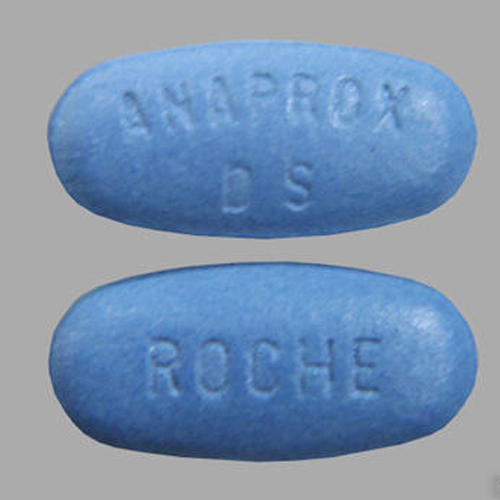
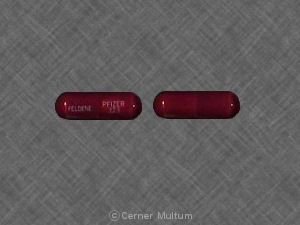
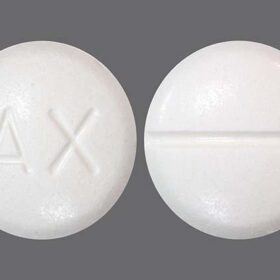
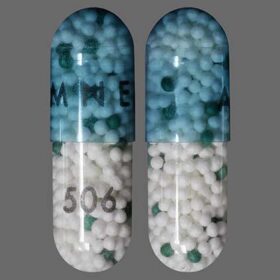
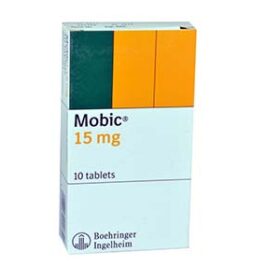


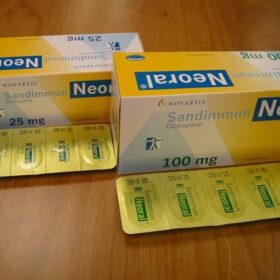
Reviews
There are no reviews yet.